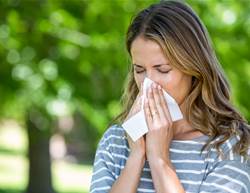Struggling to manage your cholesterol through diet alone? Your snack cupboard—more specifically, what’s missing from it—might be the key. New research shows that eating pecans could help lower cholesterol.
A study found that replacing certain snacks with pecans may improve lipid and lipoprotein levels, which are known to support healthier cholesterol numbers.
Researchers tracked 138 adults over 12 weeks. Each participant had at least one marker of metabolic syndrome but no cardiovascular disease or type 2 diabetes. Half the group continued their regular diets, while the others replaced their usual snacks with 57 grams (around 2 ounces) of raw, unsalted pecans each day.
Throughout the study, participants completed daily food and lifestyle logs and had several check-ins. At the end of 12 weeks, all participants underwent health screenings including blood pressure checks, blood tests and weight monitoring.
The results? Those who added pecans to their diet saw their total cholesterol drop by 8.1 mg/dL on average. They also showed reductions in triglycerides, non-high-density lipoprotein (non-HDL) cholesterol and low-density lipoprotein (LDL) cholesterol. The ratio of total cholesterol to HDL—commonly known as “good cholesterol”—also improved, with an overall reduction of approximately 3.75%.
However, researchers also noted a slight increase in body weight among those eating pecans daily.
How could pecans help cholesterol?
“Pecans help lower total cholesterol, LDL ‘bad’ cholesterol, triglycerides and apolipoprotein B,” says registered dietitian Jennifer Pallian. Apolipoprotein B is the main protein found in artery-clogging lipoproteins and according to Pallian, pecans play a key role in reducing its levels.
Why does that matter? Apolipoprotein B is actually a stronger predictor of cardiovascular risk—including stroke and heart attack—than LDL cholesterol alone. “The drop in LDL cholesterol linked to pecan consumption could translate to a 6.5 to 11.4% lower risk of coronary artery disease,” Pallian explains.
So what makes pecans so effective? The answer lies in their unique combination of heart-healthy fats, dietary fibre and polyphenols—plant compounds that support cardiovascular function. “Dietary fibre can help reduce how much fat enters the bloodstream, which naturally lowers cholesterol,” says registered dietitian and nutritionist Shelley Balls.
“For example, eating pecans with sliced meats or cheeses may reduce the amount of fat absorbed into the bloodstream by binding to it so it’s excreted through the stool,” she says. As for those good fats? They’re part of the reason pecans may help raise HDL (the good kind) while lowering LDL.
In the study, participants saw benefits from eating 57 grams—or about 30 to 35 pecan halves—each day for 12 weeks. But according to Balls, you don’t need to go that far to start seeing results. “As a dietitian, I recommend eating at least 28 grams of pecans and a mix of other nuts and seeds three times a week,” she says. Even small changes, she adds, can lead to meaningful health improvements over time.
That said, Pallian notes a few important considerations. While pecans may help improve cholesterol and triglyceride levels, their impact on vascular function—specifically, flow-mediated dilation (a key indicator of blood vessel health)—remains uncertain.
And because pecans are energy-dense, they should be added mindfully. “Eating too many without adjusting your overall diet could lead to weight gain,” Pallian says. In fact, participants in the study who ate pecans daily did gain more weight than those in the control group.
The bottom line
Eating pecans—at least during the 12-week study—appeared to be an effective way to lower cholesterol in the test group, likely due to their combination of healthy fats, dietary fibre and polyphenols. The participants who replaced their usual snacks with pecans saw an average drop in total cholesterol of 8.1 mg/dL, along with improvements in other lipid markers.
That said, pecans are not a replacement for cholesterol-lowering medication, and it’s worth noting that study participants did not have cardiovascular disease. There’s also a chance that the improved cholesterol numbers were influenced by cutting out more processed snacks.
“This study might have shown cholesterol benefits not just from eating pecans, but from removing more processed ready-to-eat foods—like chips, crackers, pretzels or lollies—which are often high in solid fats, sodium and empty kilojoules,” says Balls.
In other words, while the results are promising, more research is needed to confirm whether it was the pecans alone—or a broader shift in diet—that made the difference.










